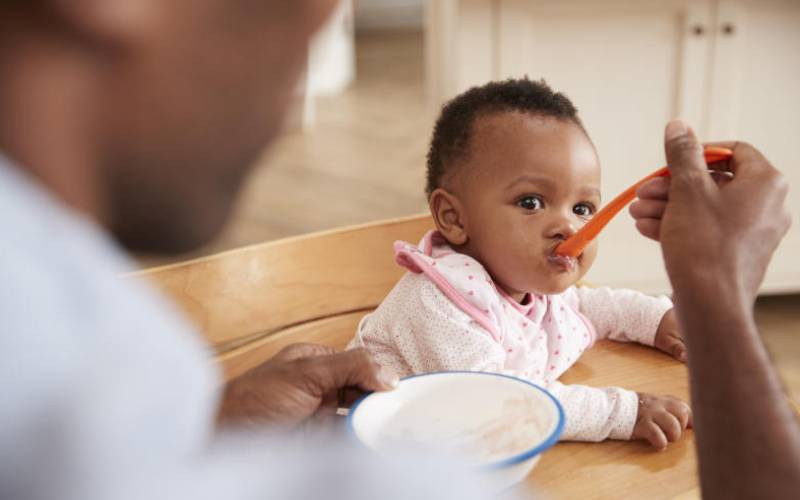
Felister Nando was 22 and in love. She looked forward to living happily ever after with her long-term boyfriend as soon as she completed her Library Science diploma.
But what happened when she discovered she was pregnant turned this dream into a nightmare. Her 24-year-old boyfriend said he was too young to have a family, so he dumped the then two-month-pregnant Felister.
“I moved back home and my mum took great care of me and my son, but I still felt a void in my heart from the rejection,” she recalls.
Felister often ignored the baby, so other family members had to feed and bathe him. She became unhappier every day, and hardly ventured out of home.
“On some days, I didn’t get out of bed all day, prompting my mother to seek professional help. When my condition worsened, I was admitted to hospital and finally diagnosed with postnatal depression," she says.
Experts describe postnatal depression as a mental health condition characterised by an oscillation of moods attributed to the oestrogen and progesterone drop in a woman's body after birth thus these chemical changes affect her attitudes.
The World Health Organisation recognises that many women suffer this depression without being aware that it is a medical condition. In an April 2013 publication, WHO cites probable causes as having a partner lacking in empathy or openly antagonistic, being a victim of gender-based violence or being socially disadvantaged.
Other triggers include having an unintended or unwanted pregnancy, having pregnancy-related illness or disability or receiving neither emotional nor practical support from family.
For Felister, having an unwanted pregnancy and later increased anxiety from a new sales job were the triggers of her emotional instability.
"I became withdrawn and did not want to interact with anyone," she admits. Crying spells, and feelings of helplessness, hopeless, and worthlessness were the order of the day.
Prof Lukoye Atwoli, the dean at Moi University School of Medicine, says these symptoms may be evident in the weeks just after delivery and should be treated immediately to guarantee both the mother and newborn's health.
"The mother may also lose interest in the baby and this can be evident in failure to breastfeed, wash and attend to other critical needs of a newborn," he points out.
He says baby blues go away about a fortnight after delivery and thus should not be confused with postpartum depression, which lasts longer and is more severe.
"Some of the most extreme effects of post-partum depression include suicidal thoughts and a tendency to harm the baby," Prof Atwoli warns, emphasising the need for social support from family and friends while the mother is on treatment.
Felister says her family's encouragement was invaluable during her battle with the condition. Through constant family discussions, she traced the multi-generational portrait of depression to one of her uncles who had long-lasting depression.
A genetic link has been supported by research on patterns of illness in families to estimate their 'heritability', found out that half of the cases can be traced to families whereas the rest are due to physical factors such as the environment an individual lives in and interacts.
Lukoye, a psychiatrist, concurs that it runs in families just like diseases such as diabetes and some heart conditions, thus the patients should not be stigmatised because it affects their recovery.
“The fear of stigma makes some women and their families reluctant to seek care,” he says.
He estimates that about two out of every 1,000 women who give birth are diagnosed with postpartum depression.
He says mental illness is twice to thrice more common in women than in men.
He also puts a disclaimer on claims by reality TV star Kim Kardashian, who converted her placenta into pills that she takes every day with a belief that it will ward off depression.
“There is no scientific link between eating your placenta and beating depression,” warns Prof Atwoli.
A decision on the most suitable form of treatment is accessed on a case-by-case basis he says, while considering the profile of the patient such as pre-existing conditions like high blood pressure and others.
“The goal is to get the mother back on course immediately so that she can nurture her baby to health, a task that no-one else in the family can offer for the newborn,” says Atwoli.
The available treatment options include psychotherapy and prescription medicines such as antidepressants, and a form of therapy known as electro-convulsive therapy (ECT).
“Psychotherapy is also known as talking cure and the patient is encouraged by an expert to speak about their challenges. In ECT, electric currents are passed through the brain to intentionally trigger a brief seizure.
In psychotherapy, the patient talks freely without censoring their thoughts and feelings thus creates greater self-awareness. This provides a cathartic experience," adds Atwoli.
To paraphrase American author Hellen Keller, Felister is not looking at her shadow but the sunshine. She has learned to keep her depression flares at a minimum by having a positive look on life.
“I look at the bright side of life and I have ventured into a small business to support my son and mother. Depression will not put me down,” she adds.
 The Standard Group Plc is a multi-media organization with investments in media platforms spanning newspaper print
operations, television, radio broadcasting, digital and online services. The Standard Group is recognized as a
leading multi-media house in Kenya with a key influence in matters of national and international interest.
The Standard Group Plc is a multi-media organization with investments in media platforms spanning newspaper print
operations, television, radio broadcasting, digital and online services. The Standard Group is recognized as a
leading multi-media house in Kenya with a key influence in matters of national and international interest.




